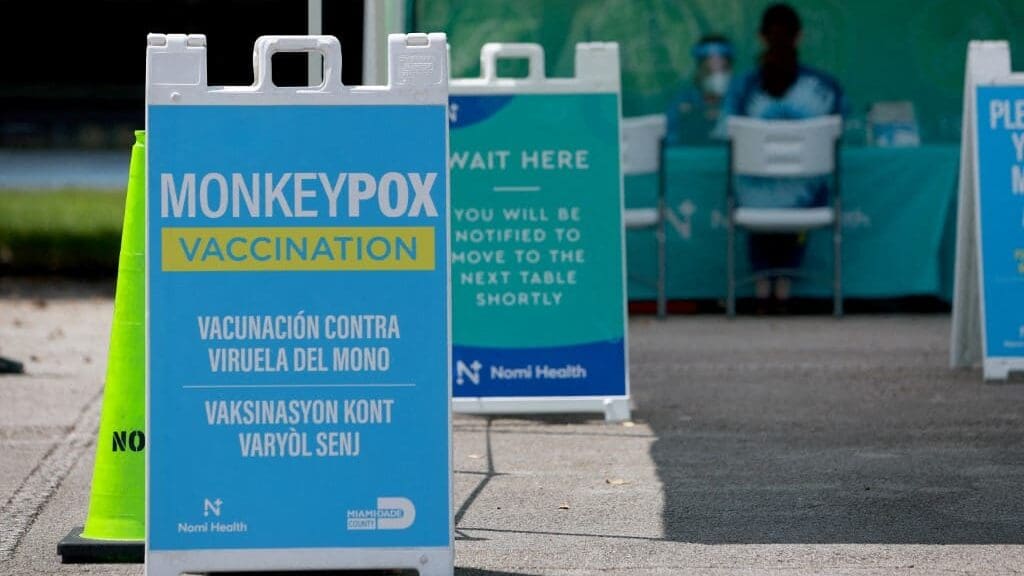
Mpox vaccine clinic in Miami, 2022.
Photo: Joe Raedle / AFP
The Director General of the World Health Organization (WHO) Tedros Ghebreyesus announced on Wednesday, August 7th, that he was convening an International Health Regulations Emergency Committee to assess the seriousness of the recent outbreak of monkeypox (Mpox) in Africa and decide whether it constitutes Public Health Emergency of International Concern (PHEIC)—one step closer to declaring another pandemic.
In light of the spread of #mpox outside #DRC, and the potential for further international spread within and outside Africa, I have decided to convene an Emergency Committee under the International Health Regulations to advise me on whether the outbreak represents a public health…
— Tedros Adhanom Ghebreyesus (@DrTedros) August 7, 2024
Speaking at a press conference from the WHO headquarters in Geneva, the director general explained that the new concerns are about a novel and deadlier strain of monkeypox than the one that was declared a global emergency back in 2022, and which spread to over 70 countries, mainly affecting gay and bisexual men.
This new strain has already been detected in 10 African countries, including the Democratic Republic of the Congo which was the hotbed of previous monkeypox outbreaks as well, and which now accounts for over 95% of all new cases and deaths. Recently, however, the new strain began to spread rapidly outside of Congo in Central Africa.
“Since the beginning of the year there have been more than 14,000 reported cases and 511 deaths reported, this is more than all of last year,” Ghebreyesus revealed. “In the past month, more than 50 confirmed or suspected cases have been reported in four previously unaffected countries neighboring [Congo]: Burundi, Rwanda, Kenya, and Uganda,” he added.
The director general highlighted that what is even more concerning than the estimated 3.6% fatality rate is that the virus appears to be particularly dangerous for children. 70% of the registered cases and around 85% of deaths involve children under the age of 15.
No reason to panic, though, as the WHO is on top of the situation.
“This should be a relatively straightforward disease to control through classic public health measures and interventions, especially for those with access to vaccines,” Michael Ryan, the head of the WHO’s Health Emergency Program said, adding that there are already two monkeypox vaccines authorized for emergency use.
At the same time, the director warned the West to take the outbreak seriously and invest in stopping it before it spreads into Europe and America, requesting $15 million from the international community to help combat monkeypox on the ground. Ryan further stressed that the world needs to “come together” and implement globally coordinated countermeasures, including “surveillance,” as soon as possible.
#Mpox is a virus that can be contained if we do the right things at the right time and put all of our minds and all of our efforts together. pic.twitter.com/YYyqHoxAvf
— World Health Organization (WHO) (@WHO) August 8, 2024
The international public health emergency designation (PHEIC) considered for monkeypox is the strongest global alert the WHO can formally make (at least until a Pandemic Treaty is adopted), with certain levels of legal obligation that member states must fulfill under the current International Health Regulations (IHR).
To be defined as PHEIC, outbreaks must fulfill three criteria. They must be “serious, sudden, unusual or unexpected,” spread through international borders, and “may require immediate international action.”
Without downplaying the potential impact of the outbreak, it is worth noting the timing of the announcement in relation to the WHO’s global aspirations. The organization was forced to temporarily shelve its proposed ‘Pandemic Treaty’ a few months ago after failing to convince member states that the draft agreement was not the first step of an unprecedented global power grab that would, eventually, enable the WHO to declare pandemics at will and dictate public health measures around the world.
Although the WHO significantly watered down the language of the draft document before its Congress in May to accommodate most concerns, some member states just saw the Treaty as a more gradual way of taking their sovereignty, instead of a direct attack. Others, still, had problems with some of the technical details, which would have forced the West to foot the bill for the entire globe’s pandemic preparedness and management measures.
Nonetheless, Ghebreyesus extended the mandate of the negotiating body tasked with tweaking the draft with the expressed desire of getting it adopted next spring. And what could convince reluctant countries that they urgently need more global public health cooperation better than a live situation developing on the ground, with numbers and charts updated daily for maximum psychological effect—and another noble cause to rally behind?
